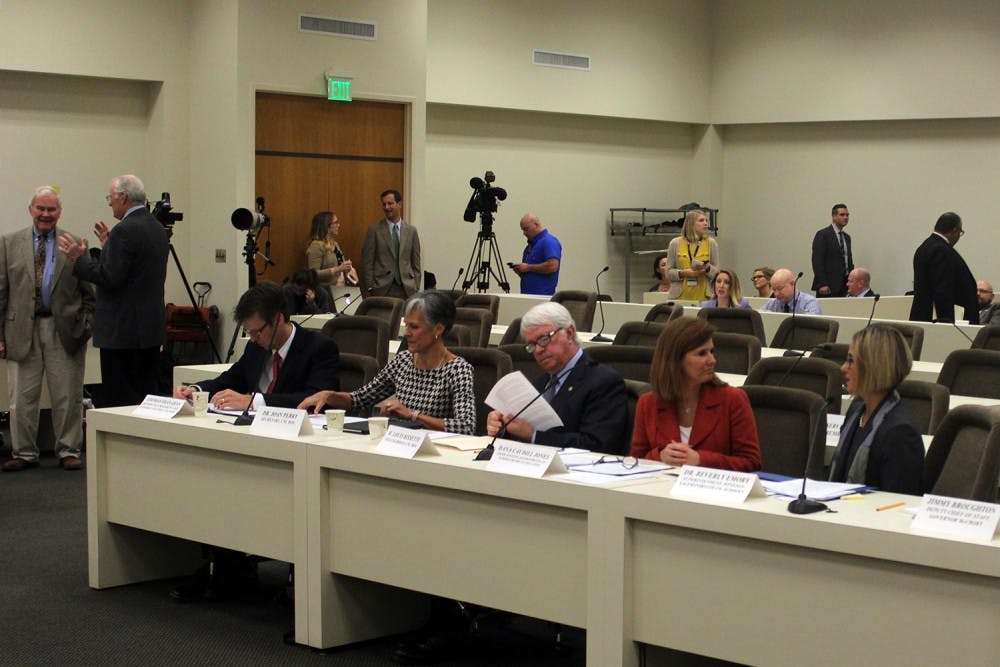The UNC Board of Governors got a lesson in open meetings laws Thursday following a rocky few months of closed-door decision making.
Though it is unclear if they violated the law while holding a closed session to approve chancellor raises Oct. 30, board members have voiced a commitment to transparency in the future.
The board came under criticism after approving raises ranging from $17,000 to $70,000 for 12 UNC-system chancellors. Lou Bissette, who took over as chairperson following John Fennebresque's resignation in October, told members of the N.C. General Assembly in a Nov. 18 meeting that the board was planning a "re-education" on matters of transparency.
“Openness is the presumption,” said Robert Joyce, one of two UNC School of Government professors who presented to the board. "Meetings must be open unless the statute allows for a particular purpose for a meeting to be closed.”
But there is a legal gray area for the board’s meeting last month — the law lists nine reasons public bodies can hold closed sessions, one of which is to discuss confidential information.
According to state statutes, parts of state employees' personnel records can be confidential. But some information is required to be public, including current salaries and the date and amount of each salary increase.
Frayda Bluestein, who presented with Joyce, said only the final salary increase must be public. Board members can decide in closed session on a proposed salary that could then be presented to the chancellor to accept or deny.
The question of the legality of the board’s Oct. 30 decision hinges on whether or not it was indeed the final decision.
“It’s unclear what a court would say — whether a court would say that in effect that really was setting salary,” Bluestein said. “… There’s just this really blurry area between is the body really setting the salary or are they authorizing a salary that becomes the salary when something else happens.”




